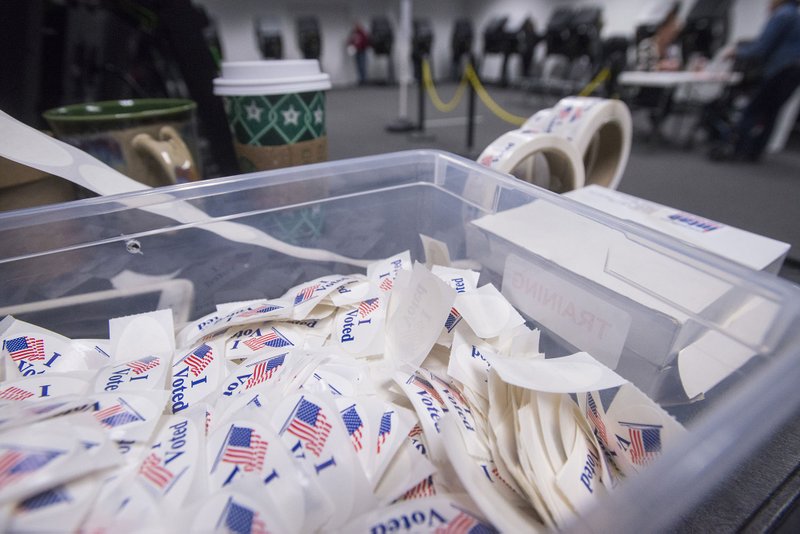Amid the covid-19 pandemic, the Arcade Arkansas committee has ended its bid to qualify for the Nov. 3 general election ballot its proposed constitutional amendment that would authorize coin-operated amusement machines.
Getting a proposed constitutional amendment on the ballot by petition requires the signatures of 89,151 registered voters, which is 10% of the votes cast in the previous gubernatorial election. The law also requires that signatures come from at least 15 of the state's 75 counties.
In late August, the committee started collecting signatures of registered voters. The pandemic's first confirmed case in Arkansas was March 11, and the government's recommendations on limiting personal contact to avoid the disease had a severe impact on petition drives.
Under the ballot proposal, the Arkansas Scholarship Lottery would administer and issue licenses for coin-operated amusement machines, and operators and net machine receipts would be subject to a 20% tax with the revenue distributed to the lottery's office. The proposal drew opponents, ranging from Family Council President Jerry Cox and lottery Director Bishop Woosley.
[CORONAVIRUS: Click here for our complete coverage » arkansasonline.com/coronavirus]
"When the COVID-19 pandemic reached Arkansas, the committee decided to take a cautious approach and suspended signature gathering in response to public health concerns," Arcade Arkansas spokesman Jason Cline said Wednesday in a written statement.
"With a second wave of cases in Arkansas seemingly larger than the initial wave, the committee has decided there is a moral duty to stop signature gathering for the remainder of the 2020 cycle so as not to contribute to the spread of this virus," Cline said.
Arcade Arkansas' announcement comes on the heels of a federal judge's ruling to allow petitioning groups to accept mailed-in petition signatures while a final ruling in the case is pending.
U.S. District Judge P.K. Holmes ruled that the plaintiff's free speech rights were violated by the state's requirements that a petition be signed in the presence of a canvasser and that the canvasser must sign an affidavit in the presence of a notary public that all signatures were personally witnessed by the canvasser.
Holmes ruled that such requirements exceed those commonly in practice for many legal documents, including the legal briefs filed in lawsuits, and said the fact that petition fraud is a crime in Arkansas is a sufficient deterrent against fraud.
In its latest report to the Arkansas Ethics Commission, Arcade Arkansas reported raising $509,913 and spending $503,291 through the end of April.
Metro on 06/04/2020
